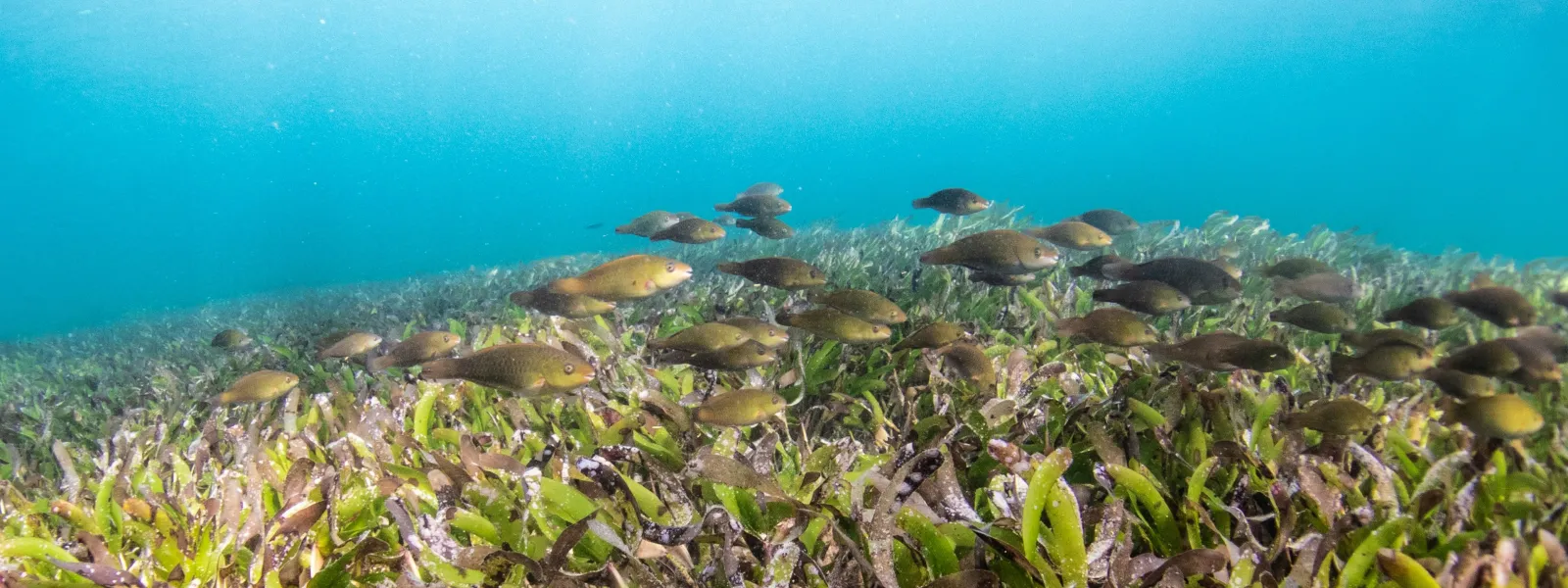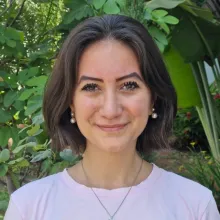
The natural wonders we could protect with the High Seas Treaty
Benjamin L. Jones / Unsplash
For decades, the ocean has protected us from the impacts of climate change, absorbing 90 percent of the excess heat produced by global warming. It’s given us food and the genetic resources we use to produce life-saving drugs. As if that weren’t enough, it’s enabled millions of families to thrive in an economy based on its bounty.
Despite its importance, the ocean remains unprotected in large part; no country governs the high seas, international waters that comprise 64 percent of the ocean’s total surface area. Management measures have given rise to a patchwork of uncoordinated protections.
To fill this gap, in June 2023, UN member countries formally adopted an agreement to protect biodiversity in the high seas, which requires ratification by at least 60 countries to enter into force.
The High Seas Treaty - short name for the Agreement on the Conservation and Sustainable Use of Marine Biological Diversity of Areas beyond National Jurisdiction (BBNJ Agreement) - proposes, among other aspects, the creation and adequate management of marine protected areas (MPAs) in the high seas, regions that would allow for the conservation and rescue of the rich biodiversity found in the ocean.
Protection at a high cost
In addition to absorbing a large part of the planet’s excess heat, the ocean absorbs nearly 30 percent of all greenhouse gases, which are responsible for climate change.
But this protective role comes with serious consequences. By interacting with and absorbing pollutants such as carbon dioxide, the ocean suffers from acidification - a phenomenon that reduces the levels of calcium, an element necessary for the shells and external skeletons of several species of marine fauna - and loss of oxygen, essential for life under the sea.
These impacts consequently affect the food supply and employment in the fishing and tourism industries.
Faced with the impacts of the climate crisis on marine ecosystems, governments must do much more to protect the ocean, starting with ratifying the High Seas Treaty, which establishes a clear legal framework and process for maintaining its health and resilience.
Protected natural wonders
As the ratification of the High Seas Treaty progresses, there is growing interest from governments and civil society to lay the groundwork for greater protection of the high seas.
As part of this push, areas of high ecological value have been identified that could form the first wave of protection once the treaty goes into effect. High Seas Alliance - a coalition of organizations of which AIDA is a member - has highlighted 8 priority sites that could be part of this first generation of MPAs, which it has called the Hidden Natural Wonders of the World:
- Salas y Gómez and Nazca Ridges: Deep in the waters of the southeastern Pacific, these two unique chains of submarine slopes and peaks are separated from South America by the waters of the Humboldt Current and the enormous chasm of the Atacama Trench. They are critical habitats and migratory corridors for at least 82 threatened or endangered species, along with many others of ecological and economic importance.
- The Termal Dome: Each year in the eastern tropical Pacific, strong seasonal winds push warm waters from the coast offshore, where they meet cooler waters carried by ocean currents. This interaction causes a unique upwelling system that brings cold, nutrient-rich waters to the sea surface, benefiting many species.
- Emperor Seamounts: Located in the North Pacific, this chain of more than 80 seamounts extends for 2,000 kilometers on the seafloor between the northwesternmost point of the Hawaiian Islands and the Kuril-Kamchatka Trench (Pacific Northwest). Its nutrient-rich waters feed a great diversity of species. And in the mountains, a range of corals and sponges shelter countless species of fish and invertebrates.
- Walvis Ridge: It is a range of seamounts that extends for about 3,000 kilometers off the coast of southwestern Namibia to the mid-Atlantic ridge (submarine ridge that runs along the Atlantic Ocean). It is composed of several seafloor types and includes many features of the deep ocean floor, along with its abyssal plains, seamounts and guyots (seamounts).
- Sargasso Sea: It is the only sea in the world without land borders. It is geographically defined by four Atlantic Ocean currents in an area of about 1,100 kilometers wide and 3,200 kilometers long. It is called the “golden rainforest of the high seas” because of the sargassum algae that float on its surface and provide habitat for a myriad of species, while absorbing and storing carbon and producing oxygen.
- South Tasman Sea: Located between Australia and New Zealand, it is a diverse and dynamic area that supports abundant marine life. It is also an important breeding area and migratory corridor for a large number of species, including endangered species such as the Antipodean albatross, which often transit its waters.
- The Lost City: It is a complex of 30 hydrothermal vent chimneys located on the upper slopes of the Atlantis seamount massif in the North Atlantic Ocean. The complex of vents rises 4,300 meters from the seafloor, with peaks at a depth of 750 meters. The Lost City chimneys are believed to be more than 120,000 years old.
- Saya de Malha: Located in the heart of the Indian Ocean, midway between the Seychelles and Mauritius, this unique seascape is home to the world’s largest seagrass community. It is a rare example of seagrass meadows on the high seas and the largest submerged ocean bank in the world, covering more than 40,000 square kilometers.
Preserving these natural wonders through marine protected areas requires the entry into force of the High Seas Treaty.
It is time to take care of the ocean as it takes care of us.
Sara Zelaya

Sara Zelaya is Honduran and Senior Advocacy Officer with AIDA’s Ocean Program, working from Tegucigalpa. She has a degree in biology from the National Autonomous University of Honduras. She holds a Master's degree in Environmental Management of Water Systems from the University of Cantabria, Spain. Sara has significant experience in conservation and sustainable use of the environment and natural resources, with emphasis on the coastal marine sector, both in civil society organizations and in the public sector in Honduras. She is a former professor of environmental sciences and has expertise in the implementation of international agreements for the protection of marine ecosystems and their resources.
